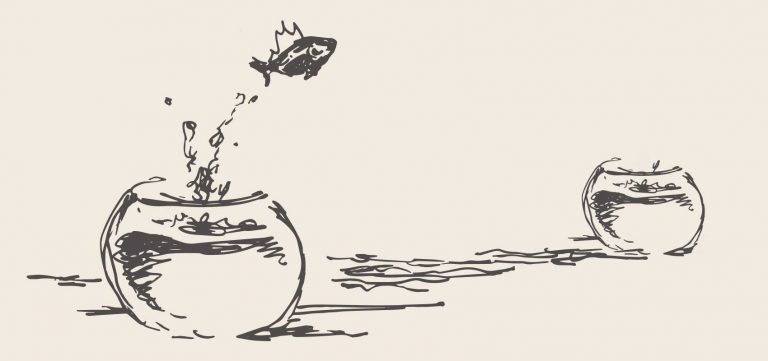In order to deliver effective nursing care, it's essential that empathy and understanding of the patient experience occurs.
The experience of the nurse and that of the patient differ for the same event. Taking a patient's blood pressure and having your blood pressure taken are two very different experiences.
The nurse is likely focused on correctly aligning the cuff marker and making sure that they are listening carefully to accurately identify the systolic blood pressure. However, the patient may be thinking, 'I hope nothing is wrong', 'I hate having my blood pressure taken as the cuff hurts my arm', or 'that nurse has cold hands'.
If you're a nurse who has had to be a ‘patient’ before, then the experience could be dramatically different again.
The nurse might think, ‘I trust healthcare, so I am well looked after and I don’t need to worry.' Or, they might think, 'Oh no, my blood pressure is high, that isn’t good. What if something's wrong?'
Similarly, the nurse receiving care may feel particularly concerned if they note that healthcare staff are not being as safe or professional as the nurse feels they should be.
For example, how would you feel if the nurse taking care of you didn't perform correct hand hygiene practices before touching you or your equipment? What if they didn’t introduce themselves to you before attempting to deliver care to you?
On the other hand, how would you feel if you observed healthcare staff delivering amazing care to you, a family member, a friend or another person?

Remember a time when you were proud of a healthcare team and their care delivery. Perhaps it was the way a nurse was able to calmly and effectively reminisce with a patient who had dementia, and you saw the patient engage meaningfully and happily for the first time that day. Or, perhaps you were proud of yourself after a patient and their family members smiled and thanked you for following up on a concern they had.
Evidently, there is a vast and ever-changing array of experiences occurring within the healthcare setting. It can be hypothesised that the person’s interpretation of specific events will dictate whether they feel the ‘experience’ was a positive one or a negative one.
What Does the Literature Show Regarding Patient Experiences in Healthcare?
Price et al. (2014) explain that:
‘Research indicates that better patient care experiences are associated with higher levels of adherence to recommended prevention and treatment processes, better clinical outcomes, better patient safety within hospitals, and less health care utilisation.’
Interestingly, a prospective study found that some factors related to patient experiences had an effect on patients' self-management (Kenning et al. 2015).
For example, ‘hassles’ in healthcare were patient experiences that affected ‘self-monitoring and insight’ (Kenning et al. 2015). It was also shown that ‘illness perceptions’ regarding ‘consequences of individual conditions’ could influence self-management (Kenning et al. 2015).
This suggests that healthcare professionals need to be aware that the way they present ‘illness’ and ‘consequences of conditions’ to patients has the potential to affect the patient's experience and their self-management activities. Additionally, healthcare staff may need to consider how difficult the healthcare experience has been for the patient, in order to understand if their ‘self-monitoring and insight’ may be affected.
Egerod et al. (2015) completed a ‘meta-synthesis of Nordic studies’ that suggested intensive care contexts can be linked to negative patient experiences such as ‘suffering’.
It was proposed that ‘life-threatening illness’ leads to patients having to choose between ‘life or death’ and that ‘caring nurses and family members’ are therefore necessary to support the person’s ‘transition to life’ (Egerod et al. 2015). Thereby, it appears that without considerate or empathetic staff and family members, the patient experience may decline.
Olding et al. (2015) expressed that there is an increased ‘call’ for the inclusion of family members, but there remains a gap in the literature on this topic. They also highlight that more research is needed regarding the socio-cultural factors related to ‘patient and family involvement’ in intensive care or critical care environments.
Despite Price et al. (2014) highlighting that the collection of patient data is important to understand patient experiences of healthcare, an analysis by Coulter et al. (2014) reinforces that health facilities must not only collect data but actually use the data for quality improvement plans to improve patient care and experiences.
Fortenberry and McGoldrick (2015) propose that effective internal marketing in health settings could lead to improvements in patient experiences and workplace culture, which again would lead back to potential improvements in patient experiences of healthcare.
Ideas to Improve Patient Healthcare Experiences:
- Use patient data (e.g. surveys, verbal feedback) about patient experiences for quality improvement of the patient experience
- Try to facilitate accessible, affordable, smooth (hassle-free) health service processes
- Be professional and ethical – adhere to organisational/workplace policies, procedures and protocols as well as the standards of the regulatory body
- Market the services available so that patients understand what care they may have access to
- Adhere to best practice guidelines
- Facilitate safe and effective care
- Always practice person-centred, empathetic and emotionally intelligent nursing care that is inclusive of the patient and (if desired) their patients and/or family members.
Topics
References
- Anhang Price, R, Elliott, MN, Zaslavsky, AM, Hays, RD, Lehrman, WG, Rybowski, L, Edgman-Levitan, S & Cleary, PD 2014, 'Examining the Role of Patient Experience Surveys in Measuring Health Care Quality', Medical Care Research and Review, vol. 71, no. 5, pp. 522-54, https://www.ncbi.nlm.nih.gov/pmc/articles/PMC4349195/
- Coulter, A, Locock, L, Ziebland, S & Calabrese, J 2014, 'Collecting Data on Patient Experience is Not Enough: They Must be Used to Improve Care', British Medical Journal, vol. 348, viewed 18 June 2018, https://pdfs.semanticscholar.org/4dcd/3c49eb940aaf66b1dbf8bedba54e35615213.pdf
- Egerod, I, Bergbom, I, Lindahl, B, Henricson, M, Granberg-Axell, A & Storli, SL 2015, 'The Patient Experience of Intensive Care: A Meta-Synthesis of Nordic Studies', International journal of nursing studies, vol. 52, no. 8, pp. 1354-61, viewed 18 June 2018, https://www.ncbi.nlm.nih.gov/pubmed/25986960
- Fortenberry Jr, JL & McGoldrick, PJ 2015,'Internal Marketing: A Pathway for Healthcare Facilities to Improve the Patient Experience', International Journal of Healthcare Management, vol. 9, no. 1, pp. 28-33, https://www.tandfonline.com/doi/abs/10.1179/2047971915Y.0000000014
- Kenning, C, Coventry, P A, Gibbons, C, Bee, P, Fisher, L & Bower, P 2015, 'Does Patient Experience of Multimorbidity Predict Self-Management and Health Outcomes in a Prospective Study in Primary Care?', Family Practice, vol. 32, no. 3, pp. 311-6, https://pubmed.ncbi.nlm.nih.gov/25715962/
- Olding, M, McMillan, SE, Reeves, S, Schmitt, MH, Puntillo, K & Kitto, S 2015, 'Patient and Family Involvement in Adult Critical and Intensive Care Settings: A Scoping Review', Health Expectations, vol. 19, no. 6, pp. 1183-202, https://pubmed.ncbi.nlm.nih.gov/27878937/
 New
New 